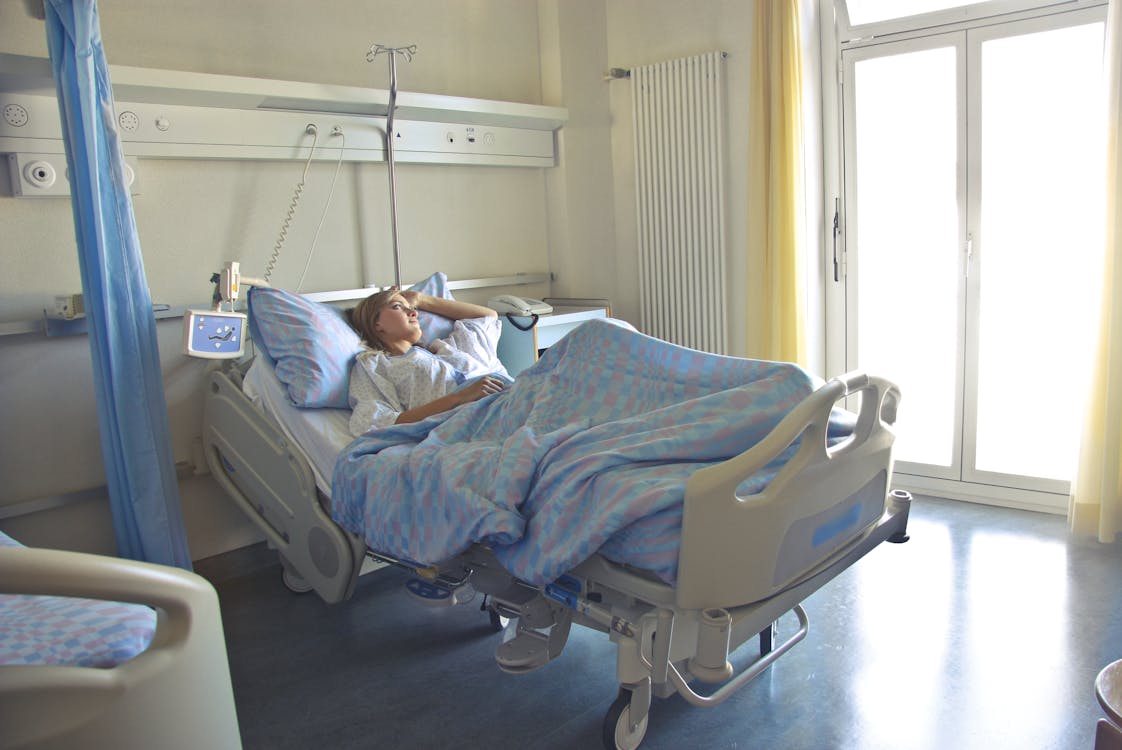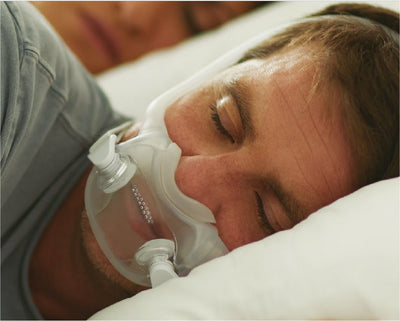Flu season is upon us — and in the midst of the COVID-19 pandemic, concerns over the flu’s seasonal impact are even higher than normal.
Studies have already confirmed that sleep apnea patients are at a greater risk of harmful outcomes from COVID-19. Now, new research indicates that the same may be true of the flu.
Understanding the increased risk sleep apnea creates for these viruses illustrates just how important it is to take steps to protect yourself this winter. It also shows how using CPAP equipment can play a direct role in helping you stay healthy.
What’s the Link Between Sleep Apnea & the Flu?

A new study published in the Journal of Clinical Sleep Medicine reveals that individuals with untreated obstructive sleep apnea are far more likely to be hospitalized after contracting the flu than those who are using CPAP therapy.
In fact, the study found that 61 percent of those who did not use CPAP therapy ultimately had to be hospitalized because of the flu. It is also worth noting, however, that even those who were CPAP compliant were hospitalized at a greater rate than the rest of the population, with 24 percent of CPAP users needing to be hospitalized.
While this suggests that all sleep apnea patients are at a greater risk of hospitalization from the flu, it is clear that using a CPAP machine makes a significant difference.
In a statement on the study’s findings, study author Glen Greenough, MD noted, “These results would suggest that use of a treatment, CPAP, that improves sleep quality reduces the severity of influenza infection as determined by rate of hospitalization. This might suggest that treating sleep apnea and thereby improving sleep quality has a beneficial effect on the immune system. It also suggests that treating sleep apnea with CPAP could help reduce hospitalizations, thereby reducing health care costs.”
Using Your CPAP Equipment While Sick

Of course, CPAP users often find themselves in a bit of a conundrum when they do get sick. As Verywell health explains, “Upper respiratory infections such as the common cold or influenza may make it more difficult to use CPAP. Similar to what occurs with allergies, the nose may become congested, stuffed up, and runny. A stuffy nose may make it hard to breathe with the machine if you use a nasal mask. The discharge of mucus can also contaminate the CPAP mask, especially if you use nasal pillows. Studies suggest that there is a risk of secondary infection if microorganisms are allowed to breed and multiply on a contaminated mask.”
Because of this, it is actually recommended that CPAP users temporarily pause their therapy when they get sick. You don’t want your treatment to worsen common flu symptoms like sore throat or coughing.
Keep in mind, though, that you can still use your CPAP machine if you are experiencing only mild symptoms. While a temporary pause shouldn’t cause serious problems, quitting your CPAP therapy entirely will eventually bring back the side effects of sleep apnea — and put you at greater risk from the flu.
Keeping Yourself Safe From the Flu

Because the study indicates a higher risk of hospitalization for all sleep apnea patients, it is essential that you take extra steps to protect yourself. Naturally, your first step is to get a flu vaccine. Flu vaccines are designed to target the most common strains of flu, and studies indicate they can reduce your risk for illness by 40 to 60 percent.
In addition to getting vaccinated, the solutions for minimizing your risk from the flu are actually quite similar to the recommendations for avoiding COVID-19. Wash your hands with soap and water regularly. Disinfect surfaces that are touched frequently throughout the day. Avoid close gatherings with people from outside your home. Wear a mask during situations when you cannot maintain social distancing.
While these recommendations have been repeated ad nauseam over the last several months, they become even more important during the onset of flu season. By taking these basic precautions, you can greatly reduce your risk of exposure to the flu and COVID-19. This will also reduce your likelihood of accidentally infecting others.
No one wants to spend the holiday season in the hospital because of the flu. And during a time when many hospitals are already filling up with COVID-19 patients, you don’t want to run the risk of not being able to get timely care. Sure, some of these precautions may seem inconvenient — but using a CPAP machine can feel inconvenient, too. Regardless, we do these things because we know they make a meaningful difference for our health.
Preparing For Flu Season
As someone who has sleep apnea, it is essential that you are prepared for this time of year. Taking precautions to protect yourself from the flu and colds, as well as using your CPAP equipment to keep sleep apnea under control, will go a long way in keeping you healthy and well in the months ahead.
While affording CPAP equipment can be expensive, Help Medical Supplies can make it much easier to get what you need. We offer a wide range of CPAP machines, masks, and more from top brands at discounted prices, allowing you to save big on these necessary purchases. In light of the current pandemic, we also offer N95 respirator masks, antibacterial soaps, and other supplies that help reduce your risk of infection.
Protect your health this cold and flu season by following guidelines for sleep apnea patients! It’s never been more important.

